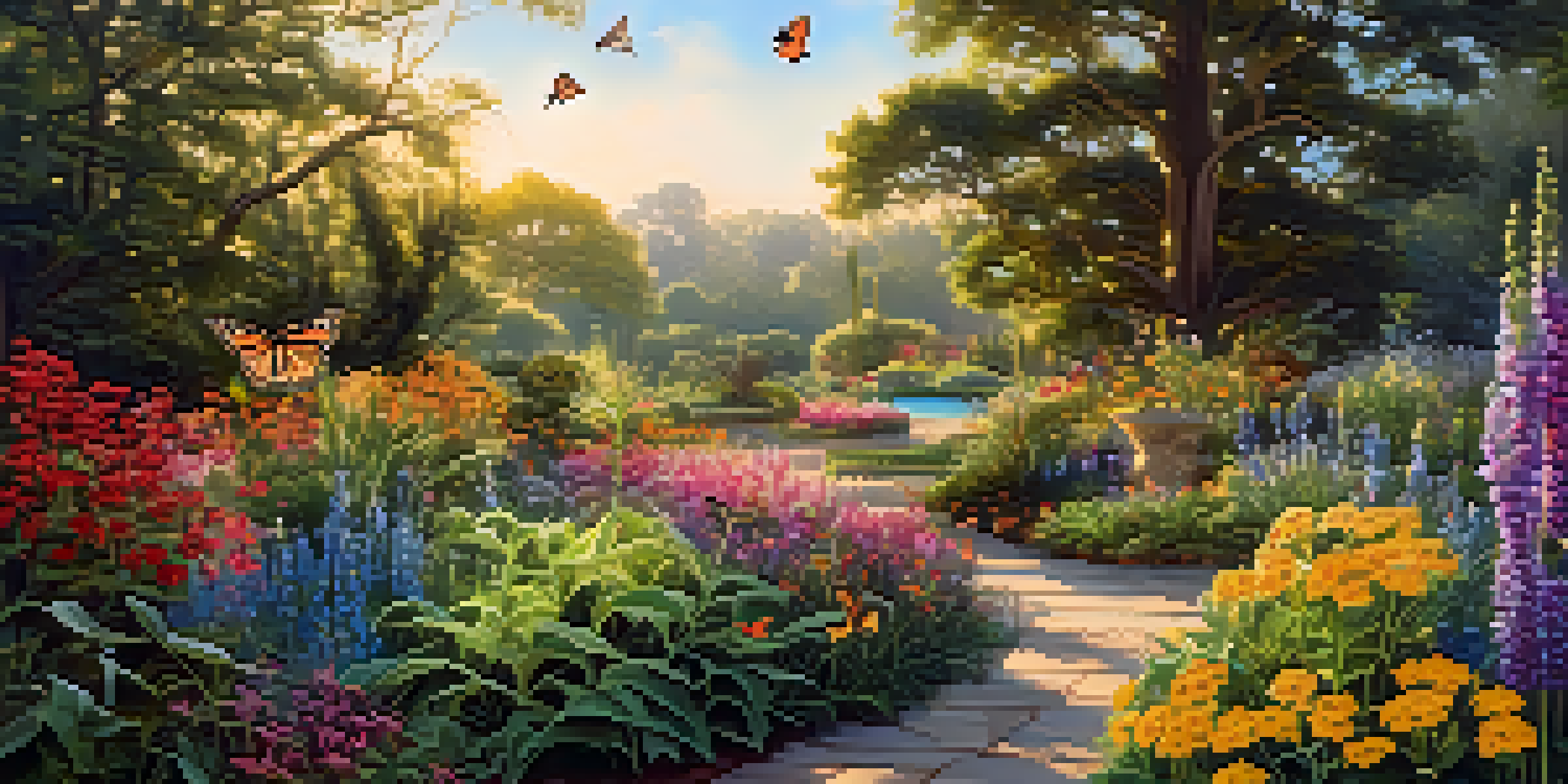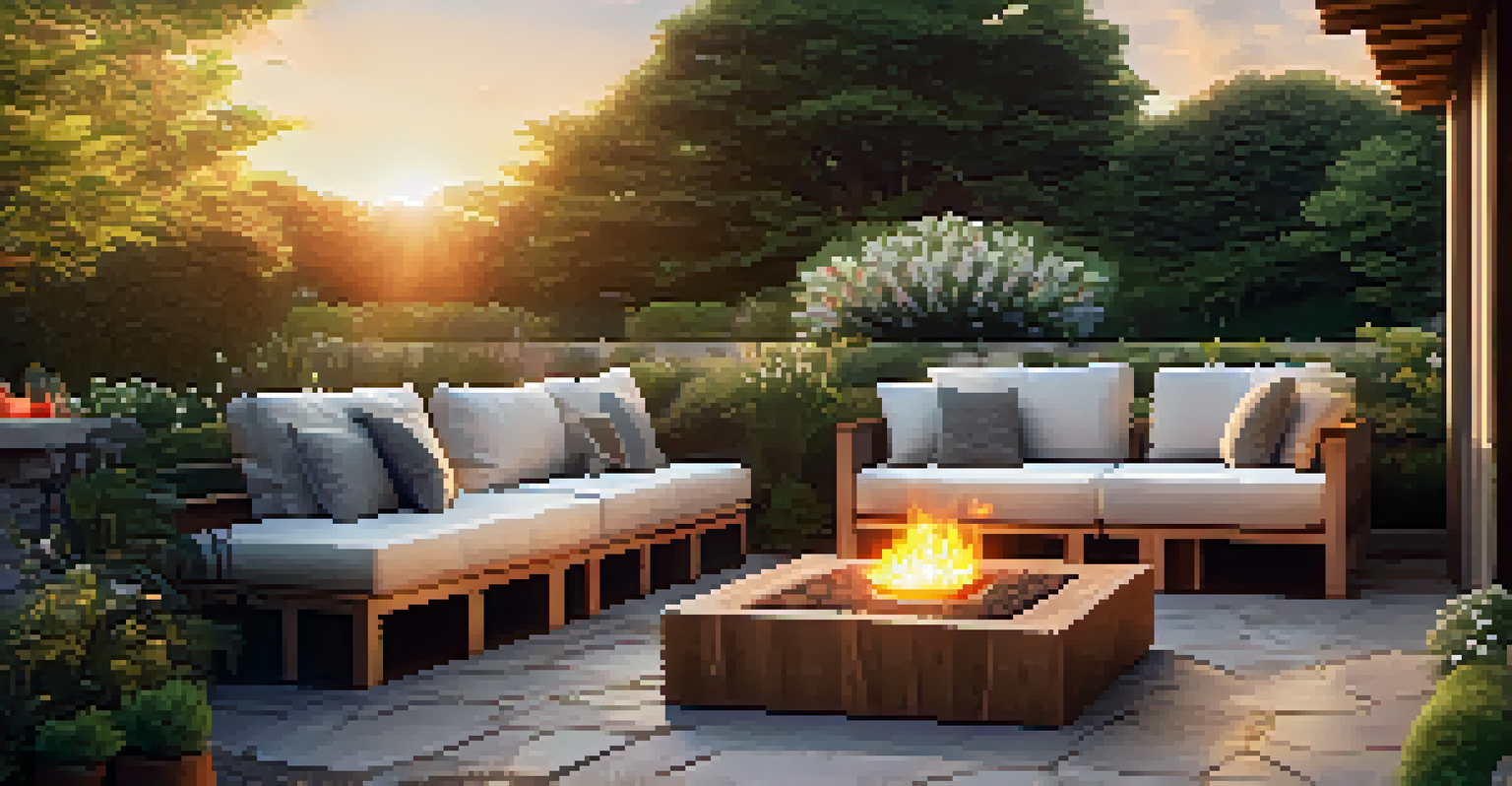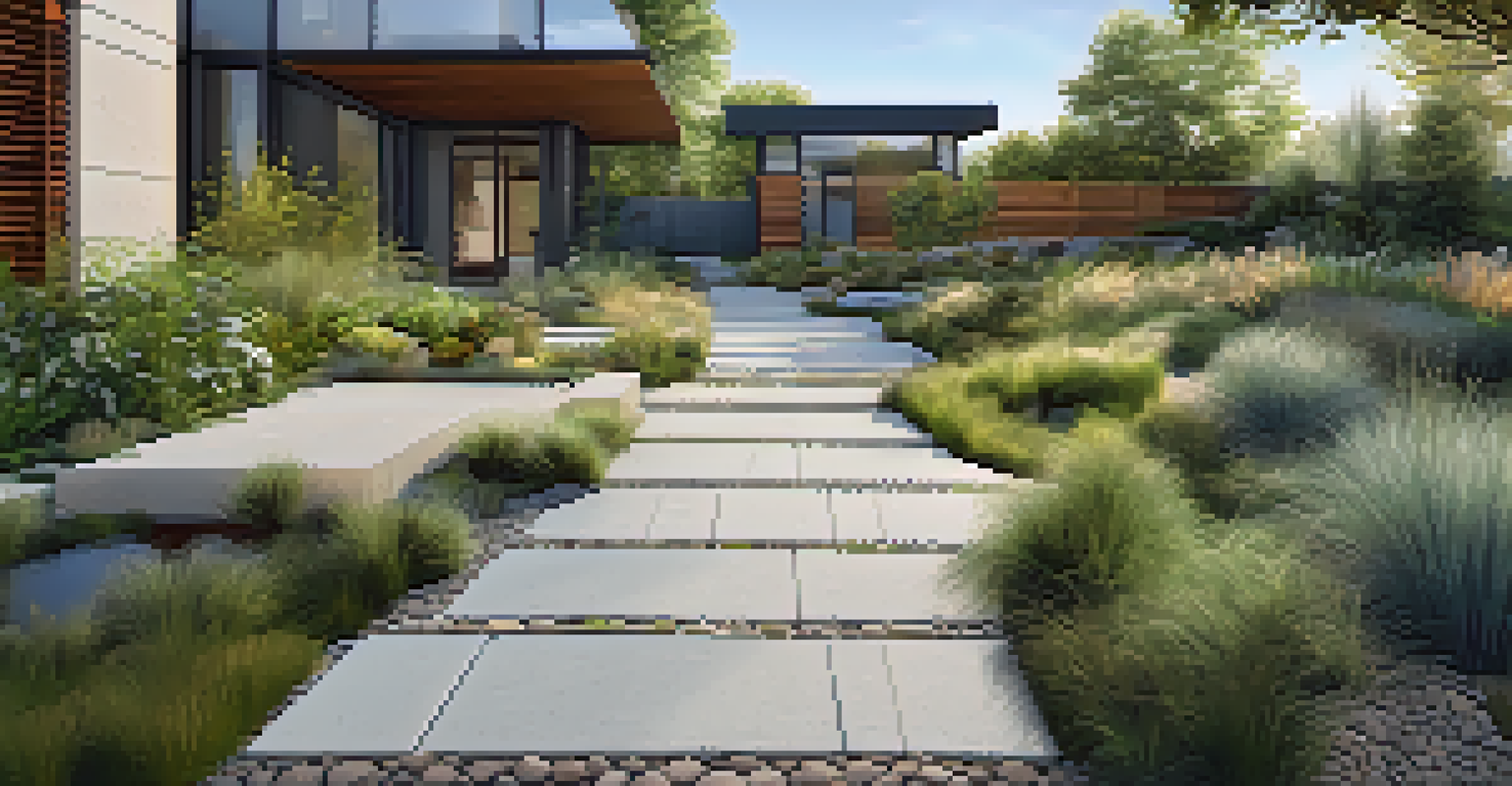Sustainable Landscaping Ideas for Luxury Properties

Understanding Sustainable Landscaping for Luxury Homes
Sustainable landscaping is all about creating beautiful outdoor spaces while respecting the environment. For luxury properties, this approach not only enhances aesthetics but also adds value and reduces maintenance costs. By prioritizing native plants and eco-friendly practices, homeowners can achieve a stunning landscape that thrives on natural resources.
The greatest threat to our planet is the belief that someone else will save it.
Imagine a garden filled with vibrant flowers and lush greenery that requires minimal watering and upkeep. This is achievable through sustainable landscaping, which focuses on using plants that are well-suited to the local climate. Such choices not only conserve water but also promote local biodiversity, creating a habitat for birds and beneficial insects.
Incorporating sustainable practices into luxury landscaping showcases a commitment to the environment, which can resonate with eco-conscious buyers. It's not just about having a beautiful yard; it's about creating a legacy of sustainability that future generations can enjoy. This holistic approach elevates the property’s appeal and aligns with modern lifestyle trends.
Choosing Native Plants for Your Luxury Landscape
One of the best ways to achieve a sustainable landscape is by incorporating native plants. These plants are naturally adapted to the local environment, meaning they require less water, fertilizer, and maintenance compared to exotic varieties. This shift not only saves resources but also minimizes the carbon footprint associated with landscaping.

Consider a garden filled with colorful native wildflowers and sturdy shrubs that thrive in your area. These plants often attract local wildlife, such as butterflies and birds, creating a lively and engaging outdoor space. Plus, they add a unique charm that reflects the local ecosystem, making your luxury property stand out.
Sustainable Landscaping Enhances Value
Adopting sustainable landscaping practices not only beautifies luxury homes but also increases property value and reduces maintenance costs.
By choosing native plants, homeowners can create a visually stunning landscape that supports biodiversity. It’s a win-win situation: you get a gorgeous garden that flourishes with minimal effort while helping the environment. This thoughtful choice can also enhance the overall value of the property, appealing to potential eco-minded buyers.
Incorporating Edible Landscaping in Upscale Gardens
Edible landscaping is a growing trend that combines beauty with functionality. Imagine walking through a garden filled with fruit trees, berry bushes, and vibrant vegetable beds, all while enjoying the elegance of a luxury property. This innovative approach not only provides fresh produce but also creates an inviting atmosphere.
Nature does not hurry, yet everything is accomplished.
Integrating edible plants into your landscape design can be both practical and aesthetically pleasing. For instance, consider planting a row of ornamental kale or colorful Swiss chard alongside traditional flowers. This not only adds visual interest but also allows for a harvestable bounty right in your backyard.
By embracing edible landscaping, homeowners can enjoy the satisfaction of growing their own food while also promoting sustainability. It encourages a deeper connection with nature and fosters a sense of accomplishment. Plus, it’s a conversation starter for guests, elevating the social aspect of outdoor living.
Implementing Water-Saving Techniques in Luxury Landscapes
Water conservation is crucial in sustainable landscaping, especially in luxury properties where expansive gardens often require significant resources. Implementing techniques like drip irrigation and rainwater harvesting can dramatically reduce water usage. These methods ensure that plants receive the right amount of moisture without wasting precious resources.
Imagine a beautifully designed landscape where water is collected from rooftops and redirected to nourish gardens. This not only promotes sustainability but also lowers water bills. Such systems can be seamlessly integrated into the overall design, making them both functional and visually appealing.
Native Plants Support Local Ecosystems
Incorporating native plants into luxury landscapes conserves resources, minimizes upkeep, and fosters biodiversity.
By prioritizing water-saving techniques, homeowners can create stunning outdoor spaces that thrive while being mindful of environmental impact. This thoughtful approach showcases a commitment to sustainability and enhances the property's overall value. It’s an investment in the future, both for the landscape and the homeowners.
Creating Outdoor Spaces for Relaxation and Entertaining
Luxury landscaping isn’t just about the plants; it’s also about creating inviting outdoor spaces for relaxation and socializing. Think of patios adorned with comfortable seating, fire pits, and lush gardens that provide a serene backdrop for gatherings. These spaces can enhance your lifestyle while remaining sustainable.
Incorporating sustainable materials, like reclaimed wood for decks or natural stone for pathways, adds to the charm while minimizing environmental impact. These choices reflect a commitment to eco-friendly living, allowing homeowners to enjoy luxurious amenities without compromising their values. Imagine hosting friends in a beautiful garden setting that feels both lavish and responsible.
Creating multifunctional outdoor spaces can elevate your property’s appeal, making it an ideal spot for both quiet moments and lively gatherings. This balance between luxury and sustainability creates a unique atmosphere that resonates with today’s homeowners. It’s about crafting an experience that feels indulgent yet aligns with eco-conscious living.
Utilizing Smart Technology for Sustainable Landscaping
Integrating smart technology into your landscaping can enhance sustainability and convenience in luxury properties. Automated irrigation systems, weather sensors, and smart lighting can optimize resource use while maintaining the beauty of your outdoor spaces. This tech-savvy approach makes it easier to manage gardens efficiently.
Imagine a system that waters your plants only when necessary, using real-time weather data to make decisions. This not only saves water but also keeps your garden thriving. Smart lighting can highlight key features of the landscape, creating an enchanting ambiance for evening gatherings while being energy-efficient.
Smart Tech Boosts Efficiency in Gardens
Utilizing smart technology in landscaping optimizes resource use and makes maintenance easier, aligning luxury with sustainability.
By embracing technology, homeowners can simplify maintenance and enhance their gardening experience. This modern approach to landscaping aligns perfectly with the luxurious lifestyle, combining convenience with sustainability. It’s a smart investment that pays off in more ways than one, ensuring your outdoor spaces remain stunning and eco-friendly.
The Importance of Sustainable Hardscaping in Luxury Landscapes
Hardscaping refers to the non-plant elements of landscape design, such as pathways, patios, and retaining walls. Sustainable hardscaping uses eco-friendly materials and designs that blend seamlessly with natural surroundings. This aspect of landscaping is crucial for creating a cohesive and environmentally responsible outdoor space.
Consider using permeable pavers that allow water to seep through, reducing runoff and promoting groundwater recharge. These materials not only look sophisticated but also contribute to sustainability. Integrating local stone or reclaimed materials further enhances the property’s charm while minimizing environmental impact.

By focusing on sustainable hardscaping, homeowners can create stunning outdoor areas that are both functional and beautiful. This thoughtful design approach elevates the property’s overall appeal, making it a perfect blend of luxury and responsibility. It’s an investment in aesthetics that also respects the environment.